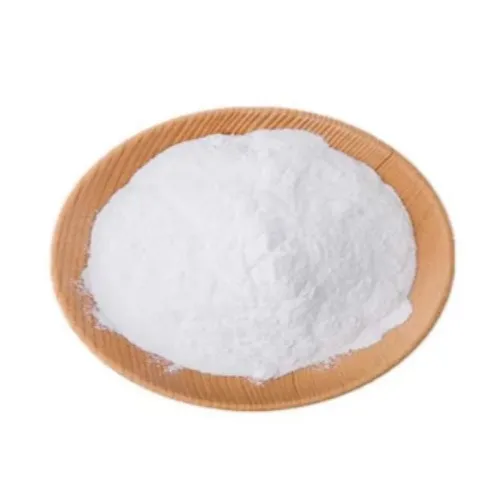Warning: Undefined array key "title" in /home/www/wwwroot/HTML/www.exportstart.com/wp-content/themes/1198/header.php on line 6
Warning: Undefined array key "file" in /home/www/wwwroot/HTML/www.exportstart.com/wp-content/themes/1198/header.php on line 7
Warning: Undefined array key "title" in /home/www/wwwroot/HTML/www.exportstart.com/wp-content/themes/1198/header.php on line 7
Warning: Undefined array key "title" in /home/www/wwwroot/HTML/www.exportstart.com/wp-content/themes/1198/header.php on line 7
- Afrikaans
- Albanian
- Amharic
- Arabic
- Armenian
- Azerbaijani
- Basque
- Belarusian
- Bengali
- Bosnian
- Bulgarian
- Catalan
- Cebuano
- China
- China (Taiwan)
- Corsican
- Croatian
- Czech
- Danish
- Dutch
- English
- Esperanto
- Estonian
- Finnish
- French
- Frisian
- Galician
- Georgian
- German
- Greek
- Gujarati
- Haitian Creole
- hausa
- hawaiian
- Hebrew
- Hindi
- Miao
- Hungarian
- Icelandic
- igbo
- Indonesian
- irish
- Italian
- Japanese
- Javanese
- Kannada
- kazakh
- Khmer
- Rwandese
- Korean
- Kurdish
- Kyrgyz
- Lao
- Latin
- Latvian
- Lithuanian
- Luxembourgish
- Macedonian
- Malgashi
- Malay
- Malayalam
- Maltese
- Maori
- Marathi
- Mongolian
- Myanmar
- Nepali
- Norwegian
- Norwegian
- Occitan
- Pashto
- Persian
- Polish
- Portuguese
- Punjabi
- Romanian
- Russian
- Samoan
- Scottish Gaelic
- Serbian
- Sesotho
- Shona
- Sindhi
- Sinhala
- Slovak
- Slovenian
- Somali
- Spanish
- Sundanese
- Swahili
- Swedish
- Tagalog
- Tajik
- Tamil
- Tatar
- Telugu
- Thai
- Turkish
- Turkmen
- Ukrainian
- Urdu
- Uighur
- Uzbek
- Vietnamese
- Welsh
- Bantu
- Yiddish
- Yoruba
- Zulu
Jul . 27, 2024 13:56 Back to list
Exploring the Benefits of Propylene Glycol as a Marine Antifreeze Solution for Cold Weather Protection
Marine Antifreeze The Role of Propylene Glycol
As maritime activities expand and the demand for watercraft increases, ensuring the longevity and sustainability of marine vessels becomes a critical concern. Among the various strategies employed, the use of antifreeze in marine systems is paramount, especially for those operating in colder climates. Marine antifreeze serves a vital role in protecting engines and plumbing systems from freezing temperatures, and propylene glycol has emerged as a preferred choice for many boaters and marine professionals.
Marine Antifreeze The Role of Propylene Glycol
The formulation of marine antifreeze using propylene glycol provides several advantages. Firstly, it has a lower freezing point compared to water, which is crucial in preventing damage caused by freezing and thawing cycles. When temperatures drop, unprotected water in an engine block or plumbing system can expand, leading to cracks and significant damage. Propylene glycol-based antifreeze mitigates this risk by lowering the freezing point of the liquid, allowing vessels to operate safely even in frigid conditions.
marine antifreeze propylene glycol

Moreover, propylene glycol has excellent thermal stability, which means it maintains its effectiveness over a range of temperatures. This characteristic is particularly important for marine applications where temperature fluctuations are common. When used in conjunction with other additives, propylene glycol helps inhibit corrosion and protects metal surfaces in engines and heat exchangers, ultimately extending the life of marine equipment.
The environmental impact of antifreeze products is a growing concern for the marine industry. Traditional ethylene glycol antifreeze is toxic to aquatic life and poses risks if leaked into waterways. In contrast, propylene glycol is biodegradable and poses significantly less risk to the environment. This makes it an attractive option for environmentally-conscious boaters and marine operators who are aware of their ecological footprint. By choosing propylene glycol-based antifreeze, users can protect their vessels while also being stewards of the marine environment.
Additionally, propylene glycol-based antifreeze is easy to handle and does not require special disposal methods, unlike its more toxic counterparts. This practicality is particularly beneficial for boat owners who perform their own maintenance and seek a user-friendly solution. The transparent nature of propylene glycol ensures that any leaks or spills can be easily detected, allowing for prompt action to mitigate potential hazards.
In conclusion, marine antifreeze formulated with propylene glycol offers a reliable and environmentally-friendly solution for protecting vessels from freezing temperatures. Its non-toxic nature, excellent thermal stability, and corrosion resistance make it a preferred choice for many boaters. By utilizing propylene glycol antifreeze, marine professionals not only ensure the longevity of their equipment but also contribute to the protection of marine ecosystems. As the industry evolves and emphasizes sustainability, propylene glycol stands out as an essential component in the future of marine maintenance practices. Whether sailing through icy waters or preparing for winter storage, the role of propylene glycol in marine antifreeze cannot be overlooked.
Latest news
-
Certifications for Vegetarian and Xanthan Gum Vegetarian
NewsJun.17,2025
-
Sustainability Trends Reshaping the SLES N70 Market
NewsJun.17,2025
-
Propylene Glycol Use in Vaccines: Balancing Function and Perception
NewsJun.17,2025
-
Petroleum Jelly in Skincare: Balancing Benefits and Backlash
NewsJun.17,2025
-
Energy Price Volatility and Ripple Effect on Caprolactam Markets
NewsJun.17,2025
-
Spectroscopic Techniques for Adipic Acid Molecular Weight
NewsJun.17,2025

